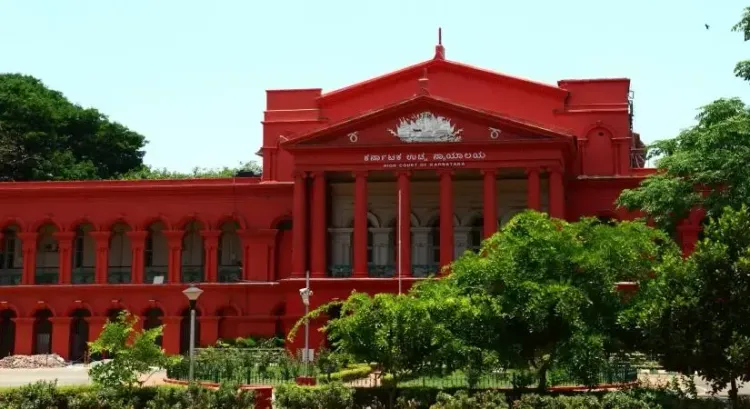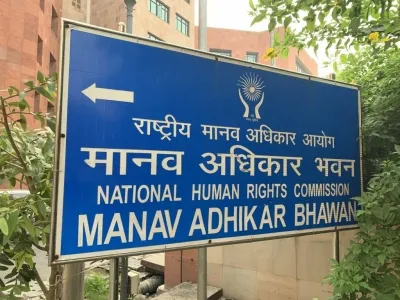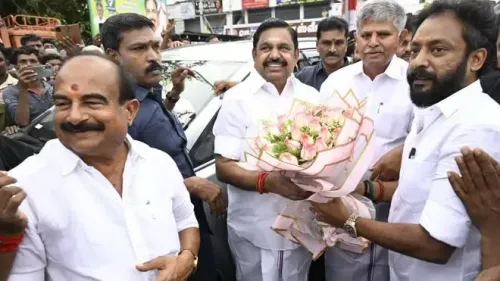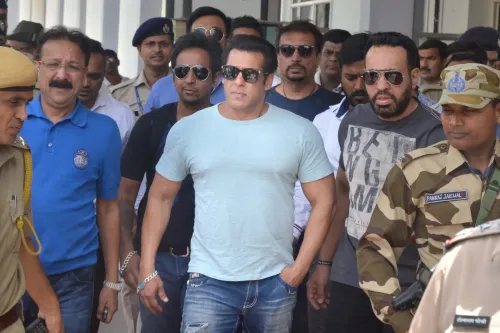Why Did Karnataka HC Stay the Government's Order Capping Film Ticket Prices at Rs 200?

Synopsis
Key Takeaways
- Karnataka HC issues stay on the government's ticket price cap.
- Price cap set at Rs 200 for cinema tickets across the state.
- Stakeholders argue the regulation is arbitrary and unjustified.
- Multi-screen cinemas with fewer than 75 seats are exempt.
- Ongoing legal proceedings will determine the future of the price cap.
Bengaluru, Sep 23 (NationPress) The Karnataka High Court has placed an interim stay on the Congress-led government's directive that imposed a cap on film ticket prices at Rs 200 in multiplexes and cinema halls statewide. The order was issued by a bench presided over by Justice Ravi V. Hosmani.
The Multiplex Association of India and other stakeholders have approached the High Court for interim relief, challenging the Karnataka Cinemas (Regulation) (Amendment) Rules 2025, which enforced the price cap.
The petitioners argue that this governmental decree contradicts the Karnataka Cinema (Regulation) Rule 1964, being imposed without adequate stakeholder consultation.
Previously, on September 16, the Karnataka High Court reserved its judgment on the plea contesting the government's decision to limit movie ticket prices at Rs 200 across the state.
Senior counsel Mukul Rohatgi, representing the Multiplex Association of India, contended that the government introduced a new condition to a pre-existing regulation concerning cinema operations in Karnataka, branding this addition as arbitrary and lacking justification.
He emphasized that the fixed price of Rs 200 raises questions. Why enforce a uniform price when customers may be willing to pay more for enhanced luxury or superior services? The imposition of a blanket rule disregards individual consumer preferences.
Rohatgi pointed out that a similar regulation was attempted by the government in April 2017 but was overturned following legal challenges. The current move, he claims, mirrors that past attempt through an amendment to the existing rule.
He asserted, "The government should not dictate a fixed ticket price, as businesses invest in their services expecting the ability to charge varying prices. Market dynamics should dictate pricing, and the law does not authorize the establishment of a fixed price. It is unreasonable to mandate uniformity across all sectors, akin to suggesting every airline should only operate in economy class."
This new regulation is reportedly harming numerous cinema businesses; therefore, Rohatgi urged that its enforcement be temporarily halted until the court reaches a final conclusion.
Senior advocate Dhyan Chinnappa, representing Hombale Films, claimed that implementing a rule under the guise of an amendment is fundamentally illegal.
Additional Advocate General S. Ismail Zabiulla, representing the state, defended the price-fixing decision as being in the public's interest.
He pointed out that the right to regulate such matters derives from the Constitution. Laws can be deemed invalid if they overstep legislative authority, violate fundamental rights, contradict constitutional provisions, or are patently unjust, he noted.
The Karnataka government introduced new regulations on September 13, capping movie ticket prices at Rs 200 (excluding taxes), intending to make cinema more accessible to the public.
This price limit became effective after amendments to the Karnataka Cinema (Control) Rules, 2014, and these new regulations are formally recognized as the Karnataka Cinemas (Regulation) (Amendment) Rules, 2025.
However, there is a significant exception: multi-screen cinemas with premium amenities that seat 75 or fewer patrons will not be subjected to these pricing restrictions, allowing them to continue their existing pricing strategies.









